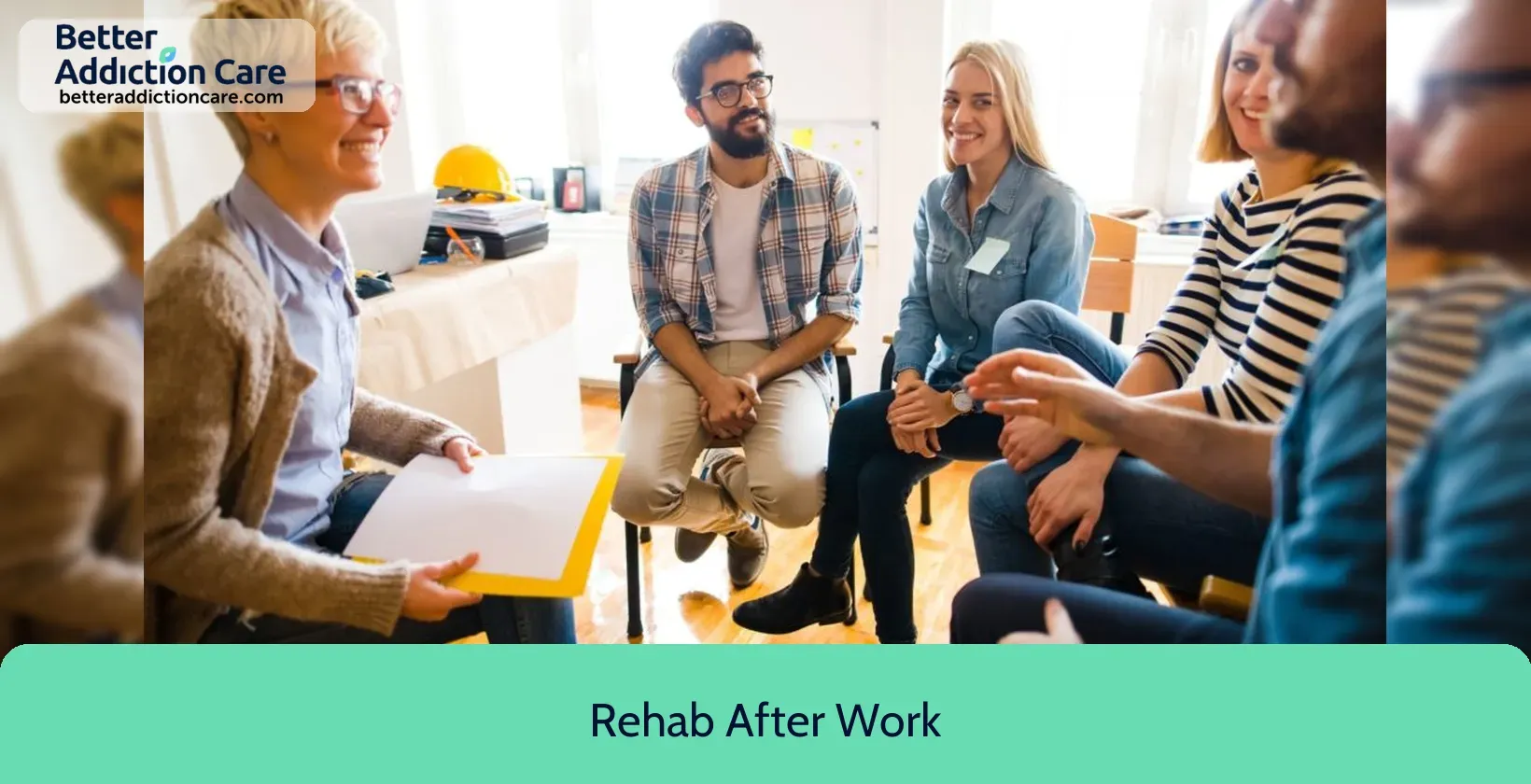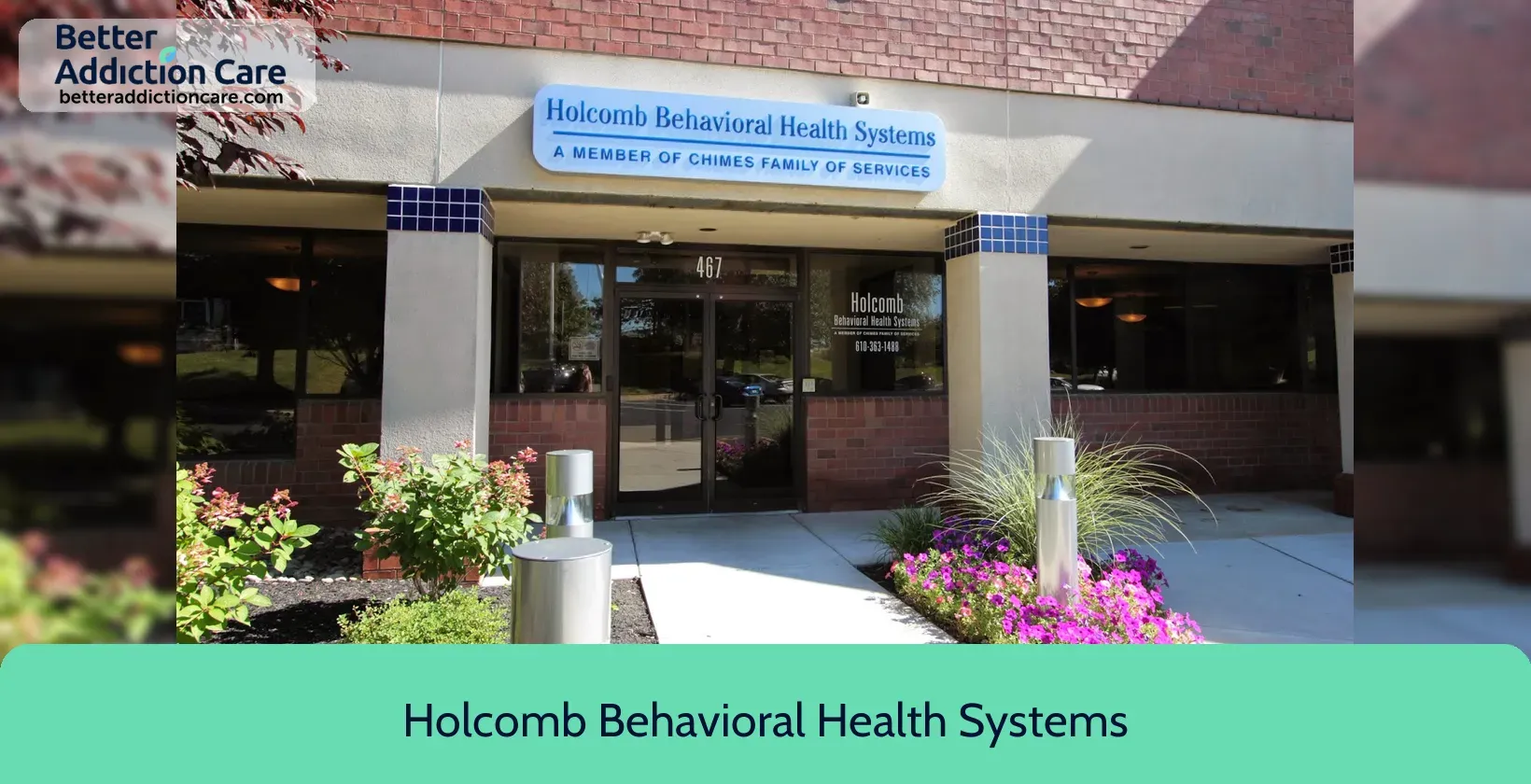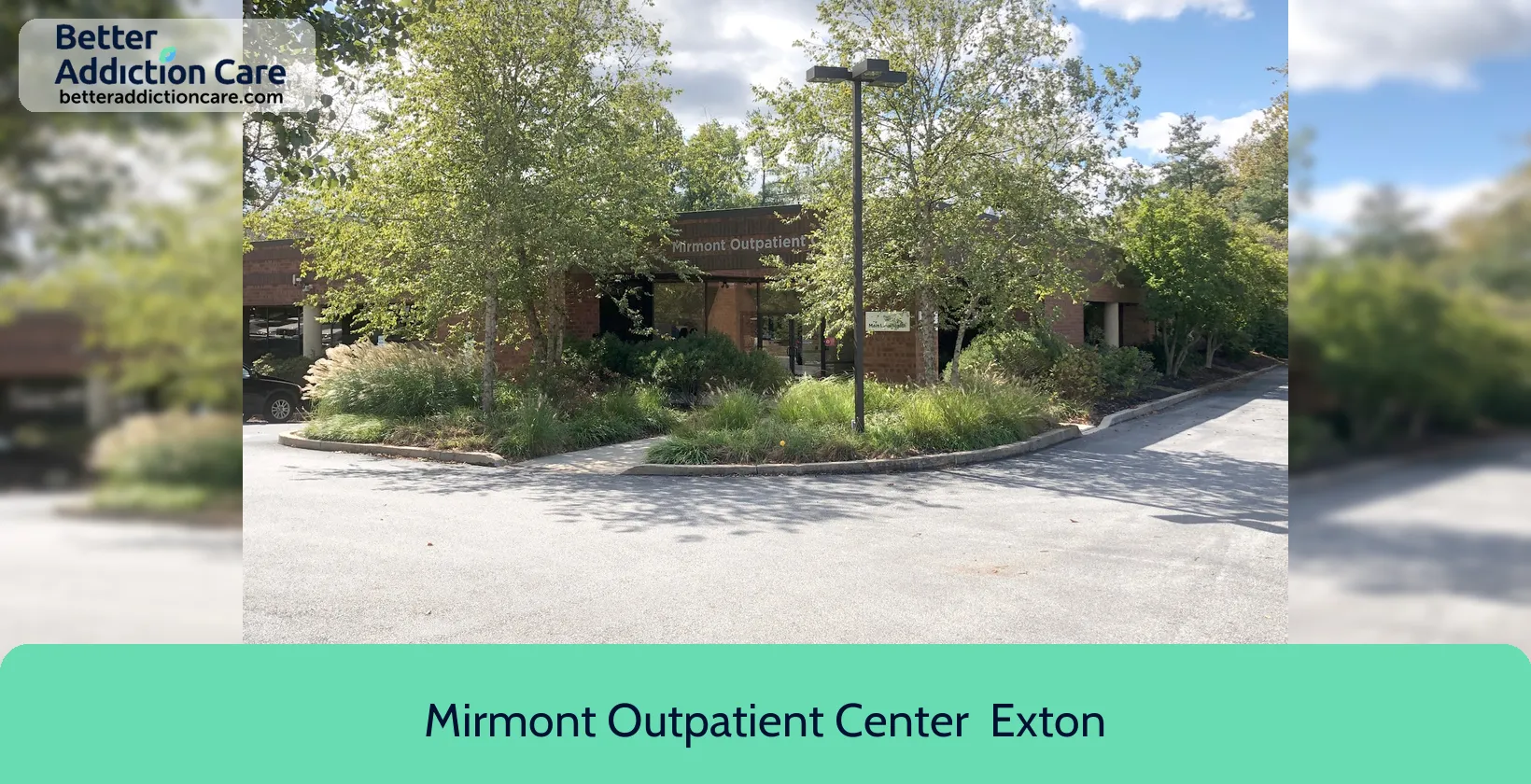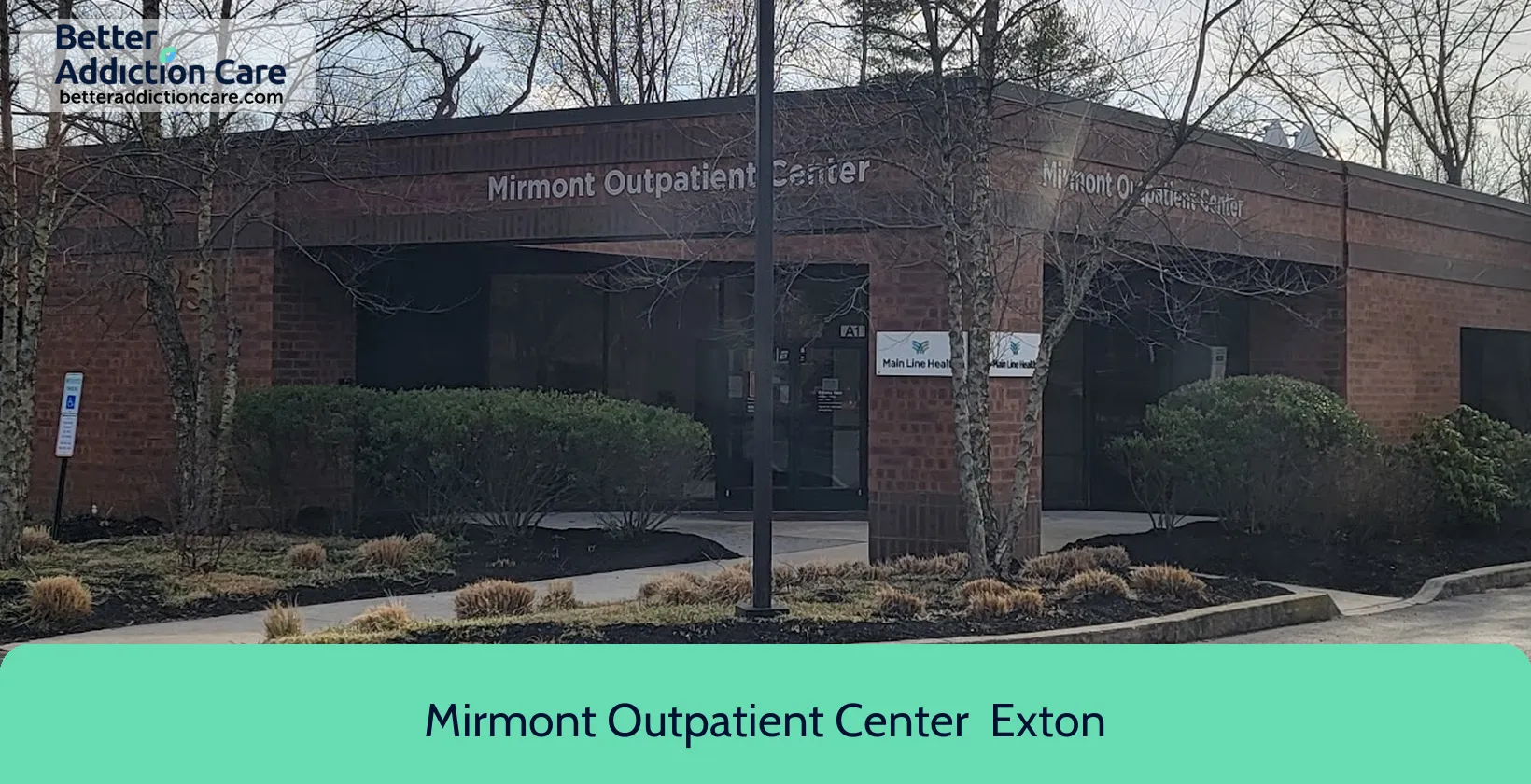Mirmont Outpatient Center - Exton - Main Line Health
Overview
Mirmont Outpatient Center - Exton - Main Line Health is a substance abuse treatment center for people seeking treatment near Chester County. As part of their treatment modalities for recovery, Mirmont Outpatient Center - Exton - Main Line Health provides individual psychotherapy, couples/family therapy, and cognitive behavioral therapy during treatment. Mirmont Outpatient Center - Exton - Main Line Health is located in Exton, Pennsylvania, accepting cash or self-payment for treatment.
Mirmont Outpatient Center - Exton - Main Line Health at a Glance
Payment Options
- Cash or self-payment
- Medicaid
- State-financed health insurance plan other than Medicaid
- Private health insurance
Assessments
- Screening for tobacco use
- Comprehensive substance use assessment
- Screening for mental disorders
- Screening for substance use
- Comprehensive mental health assessment
Age Groups
- Adolescents
- Children/adolescents
- Young adults
- Adults
- Seniors
Ancillary Services
- Case management service
- Court-ordered outpatient treatment
- Education services
- Family psychoeducation
- Suicide prevention services
Highlights About Mirmont Outpatient Center - Exton - Main Line Health
7.52/10
With an overall rating of 7.52/10, this facility has following balanced range of services. Alcohol Rehabilitation: 8.00/10, Drug Rehab and Detox: 8.15/10, Insurance and Payments: 6.00/10, Treatment Options: 7.94/10.-
Drug Rehab and Detox 8.15
-
Alcohol Rehabilitation 8.00
-
Treatment Options 7.94
-
Insurance and Payments 6.00
Accreditations
State department of health:

State Licenses, issued by government agencies, authorize rehabilitation organizations to legally operate within designated geographical areas. The specific licenses required for operation are typically determined by both the nature of the rehabilitation program provided by the facility and its physical location.
The Joint Commission:

The Joint Commission accreditation for addiction and behavioral health signifies that a facility has met rigorous standards in patient care, treatment, and safety. This recognition assures patients and professionals of the facility's commitment to providing high-quality, evidence-based care in the fields of addiction and behavioral health, fostering trust and confidence in their services.
Treatment At Mirmont Outpatient Center - Exton - Main Line Health
Treatment Conditions
- Alcoholism
- Mental health treatment
- Substance use treatment
- Co-occurring Disorders
Care Levels
- Partial Hospitalization Program
- Outpatient
- Outpatient methadone/buprenorphine or naltrexone treatment
- Outpatient day treatment or partial hospitalization
- Intensive outpatient treatment
Treatment Modalities
- Individual psychotherapy
- Couples/family therapy
- Cognitive behavioral therapy
- Dialectical behavior therapy
- Integrated Mental and Substance Use Disorder treatment
Ancillary Services
Additional Services
- Pharmacotherapies administered during treatment
- Discharge Planning
- Breathalyzer or blood alcohol testing
Special Programs
- Clients with co-occurring mental and substance use disorders
- Criminal justice (other than DUI/DWI)/Forensic clients
- Clients who have experienced trauma
- Persons with post-traumatic stress disorder (PTSD)
Get Help Now
Common Questions About Mirmont Outpatient Center - Exton - Main Line Health
Contact Information
Other Facilities in Exton

6.86

6.68
DISCLAIMER: The facility name, logo and brand are the property and registered trademarks of Holcomb Behavioral Health Systems, and are being used for identification and informational purposes only. Use of these names, logos and brands shall not imply endorsement. BetterAddictionCare.com is not affiliated with or sponsored by Holcomb Behavioral Health Systems.



